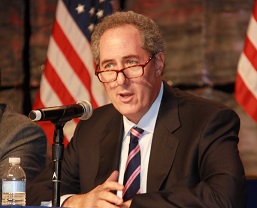 SINGAPORE--When the Trans-Pacific Partnership failed to resolve drug-patenting and other intellectual property issues in trade talks that just ended, the focus shifted to a meeting of TPP ministers, expected to take place March. TPP leaders vow to reach a final agreement soon. The elephant not in the room will be India, although its IP policy apparently will be.
SINGAPORE--When the Trans-Pacific Partnership failed to resolve drug-patenting and other intellectual property issues in trade talks that just ended, the focus shifted to a meeting of TPP ministers, expected to take place March. TPP leaders vow to reach a final agreement soon. The elephant not in the room will be India, although its IP policy apparently will be.
The tight secrecy enwrapping the TPP negotiations has triggered all sorts of speculation about an agreement on patent protection. An obvious compromise between the two extremes--the U.S. insistence on 12 years and the emerging market limit of 7--is somewhere between 9 and 10 years.
But trade negotiations usually depend on influence, not compromise, so the U.S. was not expected to bend much from its position. Add to that the fact that President Barack Obama recently met with India Prime Minister Narendra Modi as their IP policy makers agreed to take on their patent-protection split.
Mostly wishful guesswork has followed. Market-watchers wonder whether U.S. pressure would cause India to back down on some of its IP demands. India is not a TPP member, and nor is China, now the world's second-largest market. If India caved, however, that would hamper other emerging markets' ability to sway negotiations.
Intellectual Property Watch, an organization that keeps a close eye on the issue, and India's Business Today have parsed the gobbledygook in a joint statement the U.S. and India issued on their patent talks.
IP Watch said India probably was bending to the U.S. pressure, citing political analysts and its own readings of the joint statement. The group noted that U.S. pharma CEOs participated in a forum with their India counterparts during Obama's visit. Plus, the joint statement suggests "the United States is not that unhappy about the direction in which India is moving in the realm of IP."
 |
| U.S. Trade Representative Michael Froman |
The group also cited hints in recent congressional testimony by U.S. Trade Representative Michael Froman as supporting the idea of India's caving in.
Business Today attempted the same reading of the joint statement and accounts of Froman's testimony. "It is apparent that something is brewing on the IP front from the nature of apprehensions being raised," the publication concluded
It quoted a former United Nations official--who cited his own inside sources--saying, "it appears that Prime Minister Modi is very keen to assure U.S. President Barack Obama and the U.S. multinational companies (MNCs) that India will agree to the changes proposed by them. Inside sources also reveal that two issues likely to be worked upon are 'data exclusivity' and 'patent linkage.'"
- here's the IP Watch report
- and Business Today's take